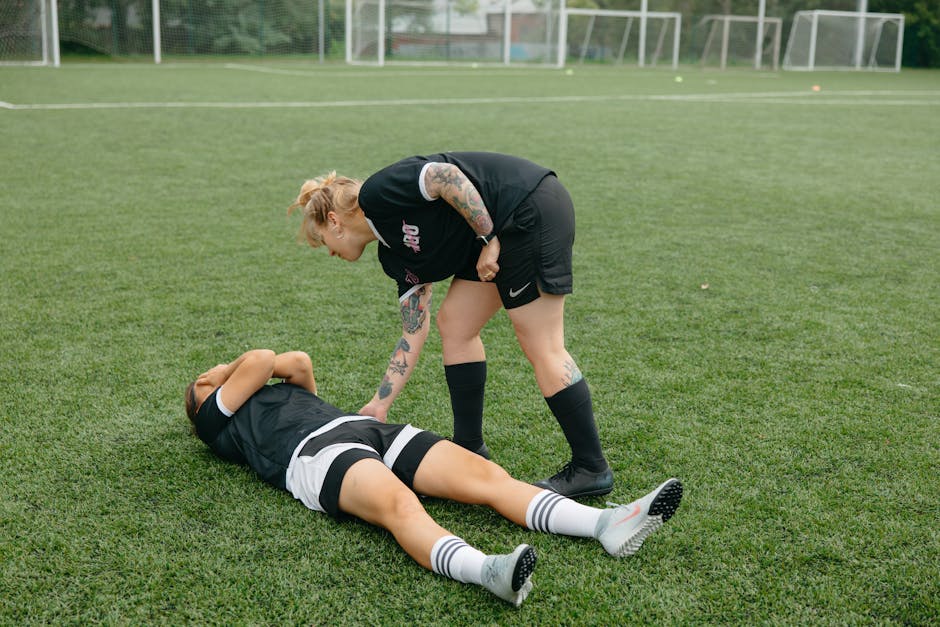Fueling the Machine: Why Nutrition Matters
You can train hard, lift heavy, and run until your legs give out—but if your nutrition is garbage, your performance will be too. Fuel is fundamental. What you put in your body affects how strong you feel, how fast you recover, and how long you can push through tough sessions. It’s not an add-on; it’s core.
Strength doesn’t just come from reps. It comes from having enough protein to rebuild muscle. Endurance isn’t just about grinding—it’s about having the right mix of carbs and fats to power you through without burning out. Recovery? No mystery there. It lives in the timing and quality of what you eat post-workout.
Bottom line: athletes who treat food as performance gear outperform those who don’t. There’s a direct connection between what’s on your plate and what your body can do. Train smart. Eat smarter.
Tip 1: Prioritize Protein (But Not Just Any Protein)
Protein isn’t optional if you’re training hard—it’s a core ingredient in how your body repairs and grows muscle. Most athletes should aim for 1.2 to 2.0 grams of protein per kilogram of body weight per day. That’s a wide range, but training volume, goals, and body composition all factor in. Endurance runners might sit on the low end, while powerlifters push the high end.
Not all protein is created equal. Complete proteins—those containing all nine essential amino acids—come mainly from animal sources like chicken, beef, fish, and eggs. They’re efficient and dependable. Lean proteins (think grilled chicken, turkey breast, plant-based powders, and low-fat dairy) let you manage calories while rebuilding muscle. If you’re plant-based, mix things up: pair foods like rice and beans or use blends of pea and brown rice protein to cover your amino acid bases.
Timing matters, too. Try to get a solid dose of protein (around 20–30 grams) within 30–60 minutes post-workout. That’s your muscle repair window. Throughout the day, spread your intake—don’t just bank it all at dinner. Consistent protein feeds recovery, preserves lean mass, and supports everything from tendon repair to immune function.
Protein is fuel for progress. Use it well, and your training pays off.
Tip 2: Carbs Are Not the Enemy
Carbs get a bad rap, but the truth is, they’re your body’s go-to fuel—especially when it comes to athletic performance. The key is choosing the right type, at the right time.
Simple carbs (think white bread, sugary drinks, gels) digest quickly and give you fast energy. These are useful in the middle of a grueling workout or just before competition. But they burn fast and crash hard. Complex carbs—like brown rice, oats, quinoa, sweet potatoes—digest slower and provide a more stable energy stream over time. That’s what you want in your everyday training meals.
Timing matters. Pre-workout, you want something light with both complex and a touch of simple carbs—maybe a banana with whole grain toast. During extended activity (over 90 minutes), simple carbs can help you power through. Post-training? Combine a complex carb with protein to reload glycogen stores and kickstart muscle recovery. Think grilled chicken with roasted sweet potatoes, or a quinoa bowl with veggies and hard-boiled eggs.
Bottom line: carb quality and timing are performance tools. Use them right, and you’ll train harder, recover faster, and stay off the crash-and-burn rollercoaster.
Tip 3: Hydration Is Strategy, Not Just Sipping Water
Dehydration doesn’t just make you thirsty—it sabotages performance. Even a small drop in fluid levels can cause noticeable declines in energy, focus, and reaction time. For athletes, that’s the difference between hitting a PR or hitting a wall. Sweating out just 2% of body weight in fluids can lead to serious dips in endurance and power output.
But hydration isn’t just about guzzling water. Endurance and high-intensity training drain key electrolytes—sodium, potassium, magnesium—that keep muscles firing and nerves communicating. If you’re just replacing water without replacing those, you’re diluting your edge. That’s when fatigue creeps in, muscles cramp, and performance plateaus.
The fix is a hydration plan that’s proactive. Start the day hydrated. Pre-load fluids before training. During long workouts (think an hour or more), mix in an electrolyte drink. Post-training, replace what you lost—track sweat rate if you want to get technical, or keep it simple with a salty snack and consistent fluids.
Hydration needs vary, but the principles hold: don’t wait till you’re thirsty, balance water with electrolytes, and hydrate with intent—not guesswork.
Tip 4: Don’t Skimp on Healthy Fats
While fats often get sidelined in athletic diets, they play a crucial role in both long-term performance and effective recovery. Far from being just an energy source, the right kinds of fats support hormone regulation, cellular repair, and even inflammation control—all essential components of athletic success.
Why Fats Matter
- Hormone balance: Fats are vital for producing key performance-related hormones like testosterone and estrogen.
- Inflammation control: Certain fats have anti-inflammatory properties that help with post-exercise recovery.
- Joint and cell health: Fats contribute to joint lubrication and maintain the integrity of cell membranes.
Top Sources of Healthy Fats
Focus on high-quality, nutrient-dense options to maximize benefits:
- Omega-3s: Found in fatty fish (like salmon and sardines), chia seeds, flaxseeds, and walnuts.
- Avocados: Rich in monounsaturated fats and potassium.
- Nuts and Seeds: Almonds, cashews, sunflower seeds, and pumpkin seeds offer healthy fats along with protein and fiber.
- Olives and Olive Oil: Great for cooking or drizzling over meals—loaded with heart-healthy fats.
Balancing Fat Intake Without Slowing Digestion
While healthy fats are beneficial, too much at the wrong time can interfere with digestion and performance:
- Avoid heavy fats immediately before intense training or competition.
- Integrate fats in meals 2–3 hours before activity or during recovery periods.
- Pair fats with proteins and high-fiber carbs for sustained energy without sluggishness.
Pro Tip: If you’re experimenting with low-carb or high-fat diets (like keto), monitor performance closely—these approaches don’t work for every athlete and may require adjustment over time.
Incorporating fats strategically can give athletes a powerful edge, both on and off the field.
Tip 5: Micronutrients = Micro-Edges
Micronutrients might be small, but their impact on performance is massive. Iron is non-negotiable for endurance—if your levels are low, your oxygen transport suffers, and so does your stamina. Magnesium plays a key role in muscle contraction and relaxation, and a shortfall there means more cramps, longer recovery, and weaker output. Zinc, calcium, vitamin D—all critical to energy, bone health, and repair. Miss the mark on these, and performance quietly erodes.
Here’s the catch: it’s easy not to notice you’re low on something until it’s already hurting you. Warning signs? Chronic fatigue, slowed recovery, more injuries, or mental fog. Routine bloodwork and food tracking help spot gaps before they turn into full-on deficiencies.
And while whole foods should always be the first line of defense, athletes burn through nutrients at a faster rate. That’s where smart supplementation comes in. Not flashy powders—just targeted support. Think iron supplements during peak training blocks, or a magnesium boost if sleep and recovery feel off. The goal isn’t to stack pills. It’s to fine-tune your system so nothing slips through the cracks.
Tip 6: Eat for Recovery
Recovery nutrition is often the unsung hero of athletic progress. It goes beyond just eating after a workout—it’s about replenishing, rebuilding, and preparing your body for what’s next.
The Critical 30-Minute Window
The timeframe right after physical exertion is key. Within 30 minutes of intense activity, your body is more receptive to nutrients. This window helps to:
- Refill depleted glycogen stores
- Reduce post-exercise muscle breakdown
- Initiate the repair of muscle fibers
Neglecting this window can delay recovery, increase soreness, and impact tomorrow’s performance.
What to Eat: Smart Recovery Fuel
Choosing the right foods is just as important as the timing. Aim for a balanced mix of protein and carbohydrates with a touch of healthy fat. Some effective recovery foods and snacks include:
- A protein smoothie with banana and nut butter
- Grilled chicken with sweet potato and greens
- Greek yogurt with berries and a sprinkle of oats
- Almond butter on whole grain toast
- Chocolate milk (a classic blend of carbs and protein)
Connecting Nutrition to Sleep and Muscle Rebuilding
Recovery doesn’t stop at your last bite. Nutrition is tightly linked to two other pillars of recovery:
- Sleep quality: Certain nutrients (like magnesium or tryptophan-containing proteins) support deeper, more restorative sleep.
- Muscle repair: Consistent intake of amino acids helps sustain muscle protein synthesis even during rest.
By aligning your post-workout meals with your sleep routine, you boost your overnight recovery, giving you the edge for your next session.
For a deeper look at how rest and recovery work together: Recovery and Rest: Importance for Athletes
Common Pitfalls to Avoid
Underfueling from Fear of Gaining Weight
It’s one of the most common mistakes athletes make—cutting calories to stay lean without realizing they’re cutting performance too. Underfueling can lead to chronic fatigue, poor recovery, muscle loss, and even injury. The irony? Many athletes trying to stay light end up sabotaging their strength and endurance. Fuel isn’t optional—it’s part of the training.
Too Much Caffeine or Energy Drinks
A little caffeine can sharpen focus. Too much and you’re dealing with jitters, dehydration, messed-up sleep, and rollercoaster energy levels. Energy drinks especially are packed with sugar and stimulants your body doesn’t need. If you’re relying on them daily just to get through training, something bigger is off—usually sleep or fueling strategy.
Ignoring Nutrition During Off-Season
Just because the competition’s over doesn’t mean your body turns off. Skipping nutrition in the off-season is a quick way to undo progress, lose muscle, and make preseason twice as hard. Recovery, strength gains, and immune health all depend on consistent eating—summer break isn’t a break from basic health. Off-season is the time to lock down sustainable habits, not abandon them.
Final Takeaway
Forget flawless. Nutrition that works isn’t built from extremes—it’s built from showing up every day and making mostly good choices. Fueling your body for sport isn’t about sticking to a perfect meal plan or hitting macros with military precision. It’s about building habits that you can live with, and adjusting when your training, goals, or body changes.
Think of it this way: your nutrition strategy is a living thing. It’s always a work in progress. Track what you’re eating, test how it impacts your performance, then tweak. What works during off-season may not hold up in peak training. What fuels a 5K won’t work for a triathlon. You have to be willing to tune it as you evolve.
Above all, remember that your body is not the enemy. It’s your engine. Your job is to listen to it, respond with purpose, and give it the fuel it needs to go the distance. Athletes who learn to work with their body instead of treating it like a machine set themselves up for the long game.




